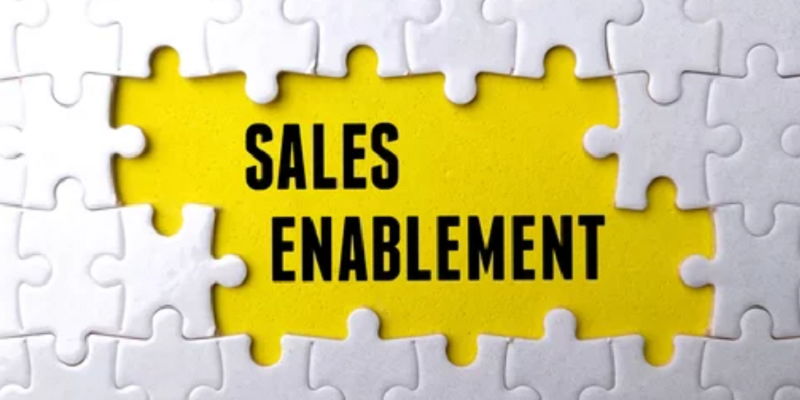In today’s highly competitive marketplace, having an effective sales enablement strategy is essential for businesses. Sales enablement involves providing sales teams with the appropriate resources and tools at the right time to increase sales performance. In this article, we will explore what sales enablement strategies are, their importance to business success, and how to implement effective sales enablement strategies.
Providing the Right Resources for Increased Sales Performance
At its core, sales enablement is about providing the right resources at the right time to increase sales performance. This includes a range of resources, such as training materials, product information, customer insights, and sales collateral. Sales teams need these resources to effectively communicate with prospects and customers and persuade them to purchase products or services.
To be successful, sales enablement strategies need to focus on providing the right resources at the right time. This means understanding the sales process and the needs of sales teams at each stage of the process. Effective sales enablement strategies should incorporate elements such as:
– Targeted training to ensure sales teams are equipped with the knowledge and skills they need to succeed.
– Easily accessible and up-to-date product information.
– Customer insights that enable sales teams to tailor their approach to individual customers.
– Sales collateral that effectively communicates the value proposition of products or services.
Identifying the Right Tools and Resources
Identifying the right tools and resources is essential to effective sales enablement strategies. This means understanding the needs of sales teams and identifying the tools and resources that will best support them.
There is a range of tools and resources that can be used for sales enablement, including:
– Customer relationship management (CRM) tools enable sales teams to manage customer interactions and track sales performance.
– Sales enablement platforms provide a centralized hub for sales collateral, training materials, and more.
– Sales analytics tools provide data-driven insights into sales performance and enable sales teams to optimize their approach.
Building Long-Term Customer Relationships
Building long-term relationships with customers is an important part of any company’s success. This is where sales enablement strategies can play an important role. By providing sales teams with the right resources and tools, companies can help them build strong and lasting relationships with customers.
Sales enablement strategies can help facilitate this process by:
– Providing sales teams with a deep understanding of customers’ needs and pain points
– Enabling sales teams to tailor their approach to individual customers
– Providing customer insights that enable sales teams to anticipate customers’ needs and proactively address them
Data-driven insights are paramount when it comes to effective sales enablement strategies
By collecting and analyzing data, sales teams can gain valuable insights into their sales performance and optimize their approach accordingly.
To effectively use data in sales enablement strategies, it is important to:
– Identify key metrics to track, such as customer satisfaction scores or sales figures.
– Use data to gain insight into customer behavior and identify trends.
– Use data insights to optimize sales collateral, training materials, and other resources.
Personalization is a key component for creating an engaging customer experience
By tailoring the sales approach to individual customers, sales teams can increase the likelihood of success and build stronger relationships with them.
Sales enablement strategies can aid in personalization efforts by providing:
– Customer insights that enable sales teams to tailor their approach to individual customers.
– Sales collateral that effectively communicates the value proposition of products or services to individual customers.
– Training materials that focus on the skills necessary for personalized selling.
Tailored Engagement Strategies Based on Individual Customer Needs
Engagement strategies should be tailored to individual customer needs. By understanding the needs and pain points of each individual customer, sales teams can effectively engage with them and build strong relationships.
Sales enablement strategies can help facilitate tailored engagement efforts by providing:
– Customer insights that enable sales teams to identify individual customer needs and pain points.
– Sales collateral that is tailored to individual customer needs and effectively communicates the value proposition of products or services.
– Training materials that focus on the skills necessary for tailored engagement.
Tracking key performance indicators (KPIs) is essential for measuring the success of sales enablement strategies
By tracking KPIs, companies can gain insight into sales performance and optimize their approach accordingly.
Some examples of KPIs that can be tracked include:
– Sales figures
– Customer satisfaction scores
– Time to close
– Pipeline velocity
By tracking KPIs, companies can gain valuable insights into the effectiveness of their sales enablement strategies and adjust their approach as necessary.
Utilizing Technology for Effective Workflow Processes
Technology provides opportunities to create an effective workflow process. By utilizing technology tools and platforms, companies can streamline the sales process and make it more efficient.
Some examples of technology tools and platforms that can be used for sales enablement include:
– Customer relationship management (CRM) tools
– Sales enablement platforms
– Sales analytics tools
By utilizing technology for sales enablement, companies can improve the efficiency of their sales teams and optimize their approach to the sales process.
:Sales enablement strategies are instrumental in the success of any business. By providing the right resources and tools to sales teams at the right time, companies can increase sales performance, build lasting customer relationships, and drive growth and profitability. By following the steps outlined in this article, organizations can create an effective sales enablement program that helps them achieve their goals.

